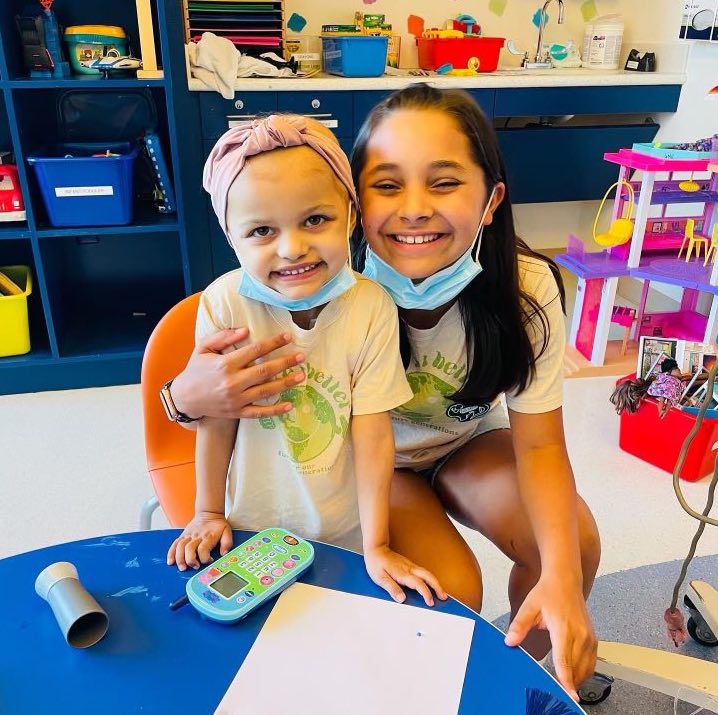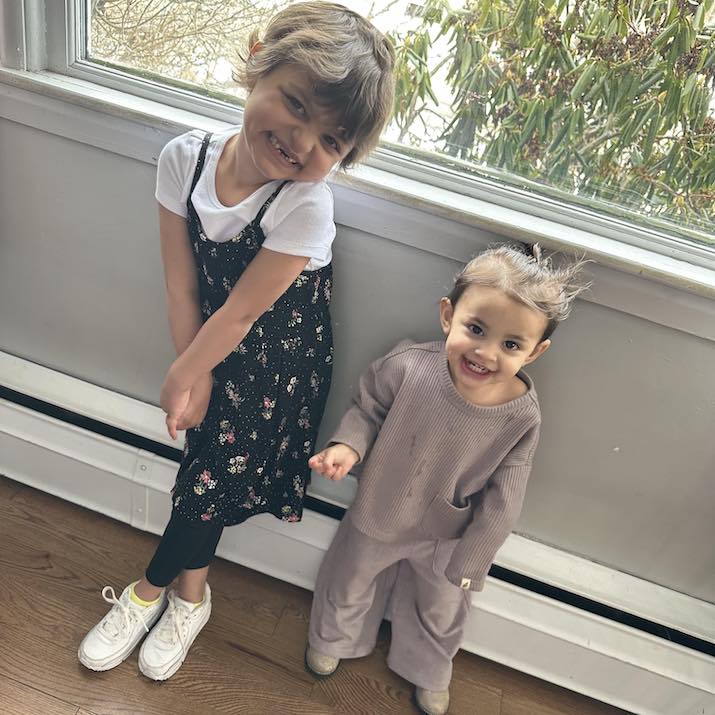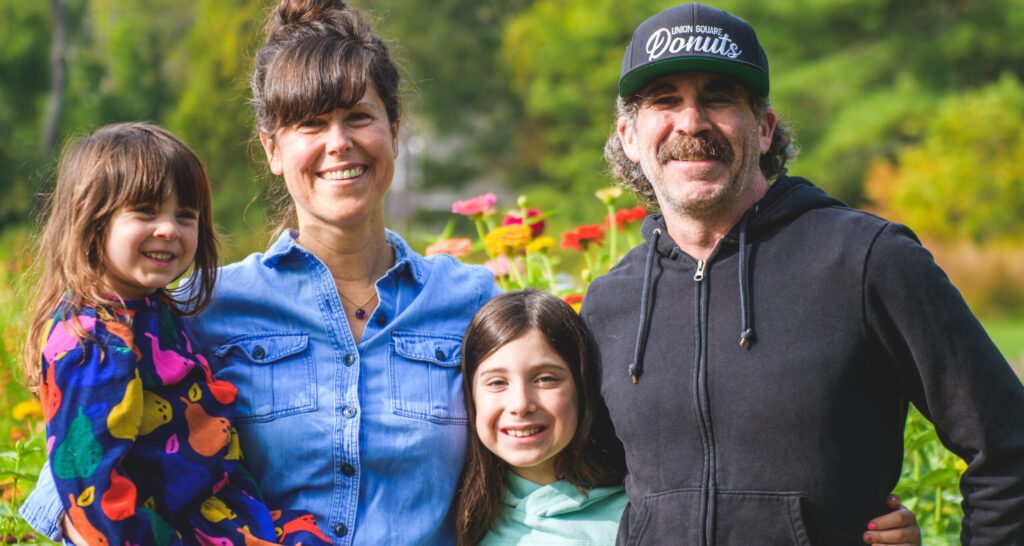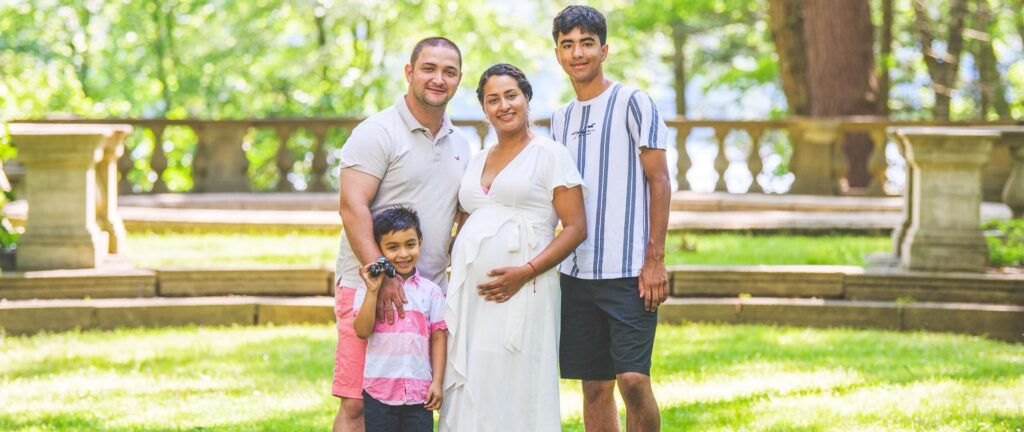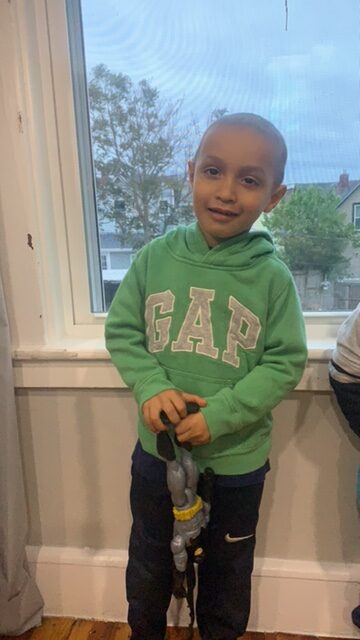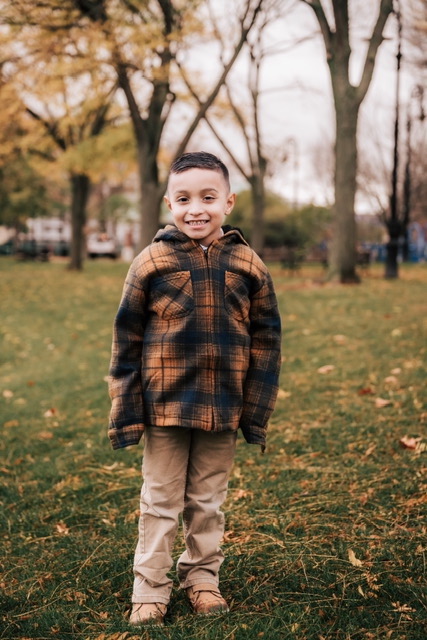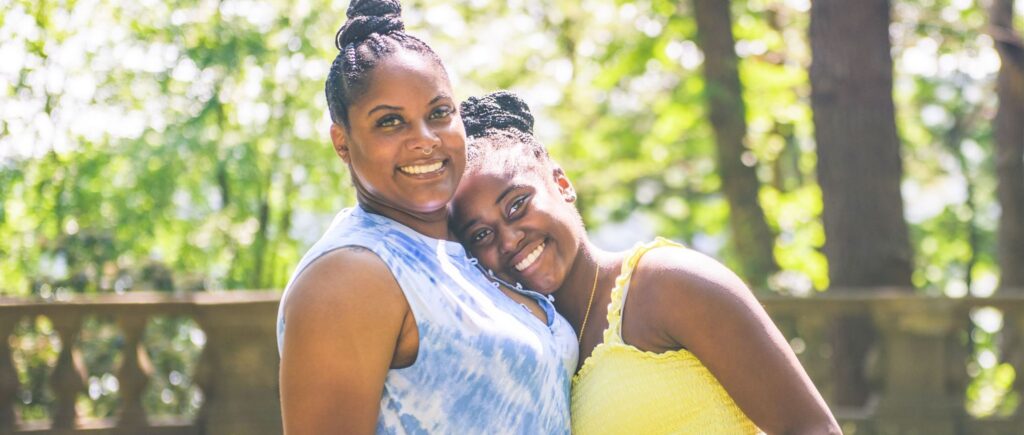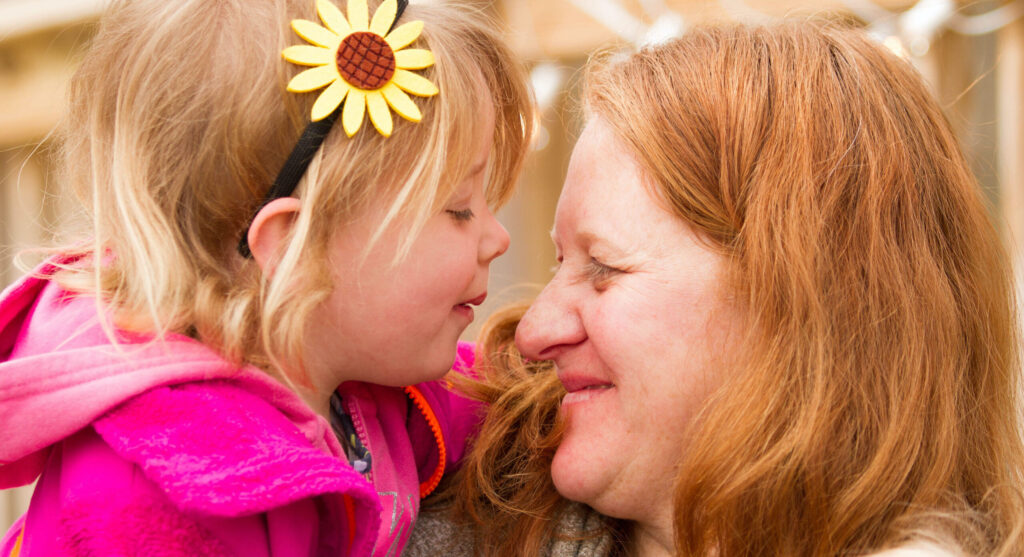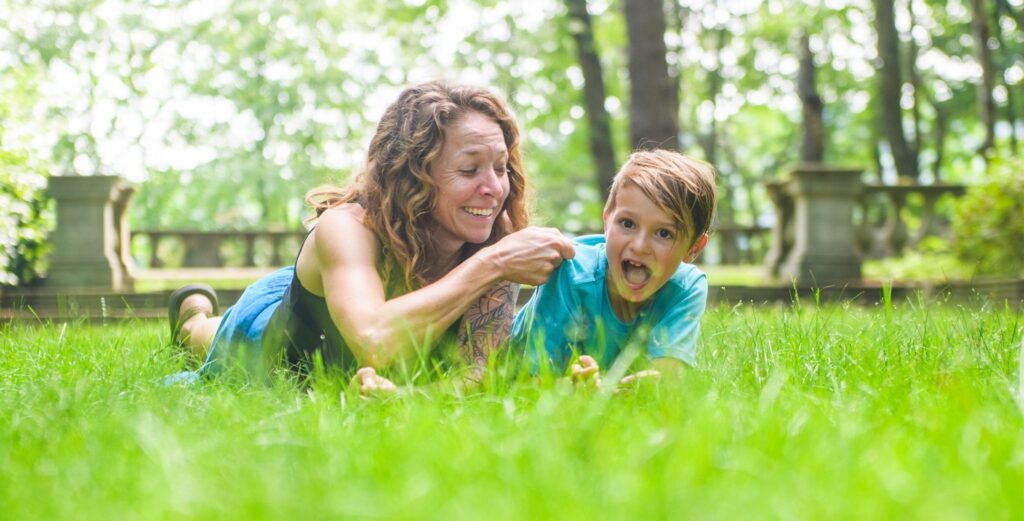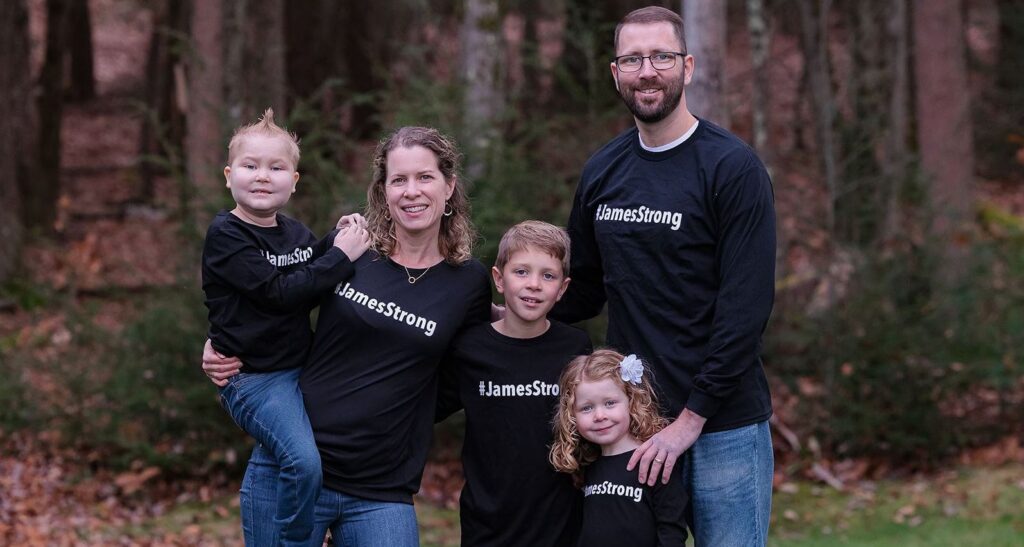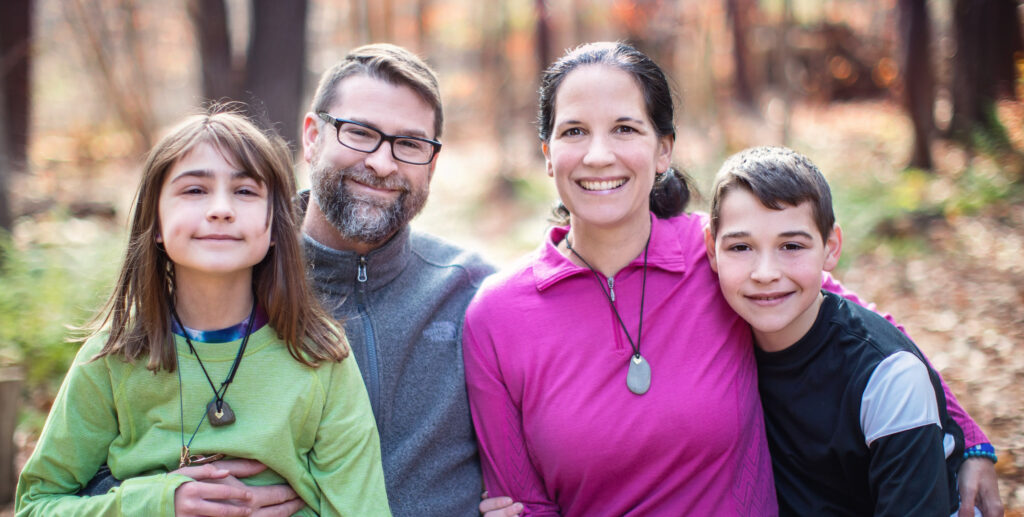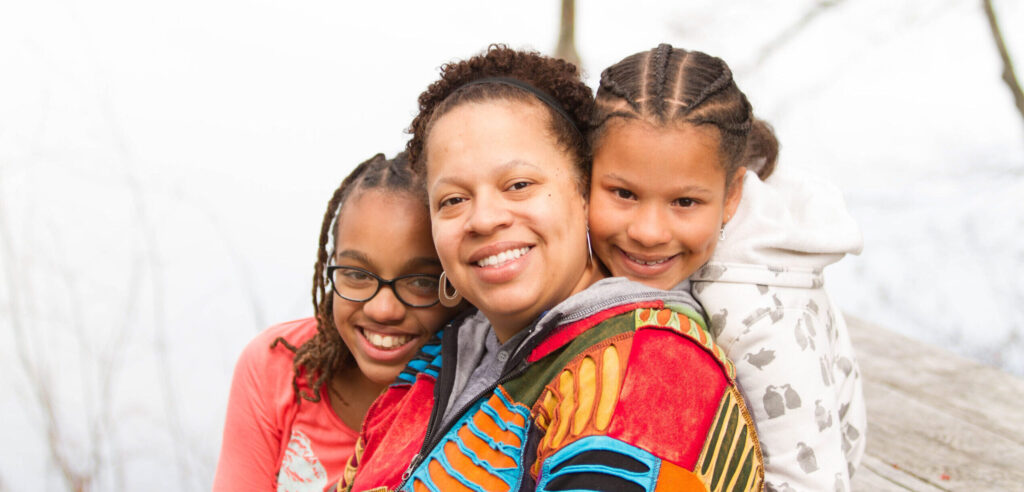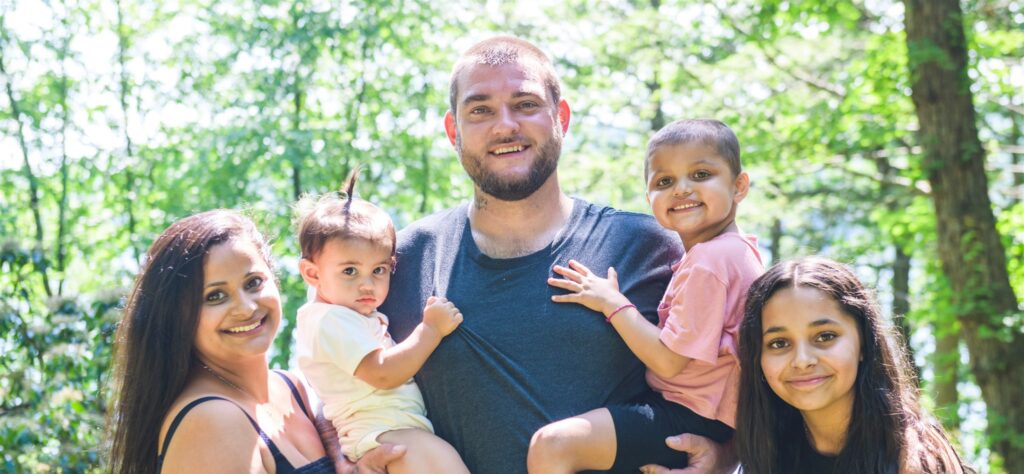
Isabella Hanson–sweet little Izzy–was born on November 23rd, 2018. Her mom and dad, Laura and Josh, and her big sister, Nia, were simply in love. Life was good and simple at the start. Nia, a talented dancer, had several classes a week. As a toddler, Izzy would watch her big sister in awe. One day, in March of 2022, three-year-old Izzy tripped and fell at one of Nia’s rehearsals. She bellowed in pain, and refused to walk for over a week. The doctors thought maybe she had dislocated her knee, or strained her ACL, and they set her up with physical therapy.
Izzy did start walking again a week after the accident, but suddenly one night, she woke up screaming in pain. Her parents were concerned and decided to take her to an orthopedist. Since nothing showed up in the x-ray, they gave her a boot and asked to see her again in a week. The condition persisted and she would consistently lose function in her leg, fall, limp, and refuse to climb stairs. Her parents knew something was wrong, but no one seemed to know what it could be.
That’s when the low-grade fevers started. Izzy looked and acted unwell–she was pale and more lethargic than other three year olds. Every once in a while she’d wake up in the middle of the night in pain. More doctors appointments turned up nothing. Their primary care doctor took more x-rays and sent them to Boston Children’s Hospital (BCH). They attempted to get an appointment with a children’s arthritis specialist, but they were booked out for 6 months. Instead, an orthopedic appointment opened up at BCH and they took it. This doctor agreed that her condition was unusual, and concerning. He suggested it might be related to her kneecaps and ordered an MRI, but it was only a guess, and it would prove to be wrong, very wrong.
Through this time, Izzy was having blood drawn, but the results were always normal. Then her shoulder started hurting. Her fevers continued to spike. After another difficult weekend with no answers, they brought Izzy back to BCH. The doctor there admitted, “She’s sick. And I’m sorry it’s taken 8 weeks to believe you. She may have a malignancy.” Once again her bloodwork came back normal, but they scheduled an MRI for that Friday.
At this point, Izzy’s parents felt defeated. Laura was thinking, this MRI will be pointless. Was it worth putting her through it? She needed a sign to know that they were going to figure out what was wrong with her precious child. The summer before, Josh’s brother got married. His wife’s father had recently passed away from cancer. One day, this man, who Laura did not know especially well, appeared to her in a vision. He told her to get the MRI done. While this seemed unusual, Laura listened.
And thank goodness they did. The MRI showed that Izzy had lesions in her leg, which they thought might be Osteomyelitis, a serious bacterial infection of the bone. They were sent to the ER where a doctor said, “You guys are fighting so hard to get her help. I promise to help you figure this out.” When the Leukemia sensitivity blood test came back negative again, the oncologist Laura spoke with told her, “I’m 90% sure this is not cancer. You can take her home and we’ll continue to monitor over the next couple weeks.” Laura and Josh were frustrated beyond belief! “She’s not ok, we can’t wait a couple weeks. No one will take care of her. We can’t control her pain anymore.”
That’s when the ED doctor stepped in. He pulled strings to get oncology to admit Izzy, despite the oncologist’s recommendation. They were admitted on a Monday and they ran a bone marrow test on Tuesday. Late afternoon a team of doctors came in, sat them down, and told them it was leukemia. By this point Izzy was so sick even though her lab work looked fine. But because of an insurance error, they wouldn’t start treatment right away. NH Medicaid was denying the claim to treat Izzy in Boston. The doctors, worried about the potential medical bills, suggested they fly Izzy to Dartmouth. But Dartmouth does not offer the aggressive treatment protocol that Izzy needed.
Josh and Laura were completely infuriated, “She will die! No, we are starting treatment here today.”
The first phase of Izzy’s leukemia treatment was comprised of 32 inpatient treatments with heavy doses of chemotherapy, constant lumbar punctures, and steroids, with the goal to try to get her in remission (ie., no leukemia cells in her bone marrow), which she did after about one month. By August, she had started to walk on her own again. Still, the family had to spend a total of 4-6 months in the hospital over the course of a year. And they received difficult news that Izzy has a genetic deletion, which puts her in a high risk category and required even more chemotherapy.
Izzy got very sick during these treatments and spent a week in the ICU with a dangerous blood infection in her pic line. She got another infection from a splinter in her foot that caused cellulitis to travel up her leg and affected her ability to walk again. When she was so sick, she lost all of her silly personality, and slept for much of the day. The only thing that would cheer her up was Facetiming and visits with her big sister Nia, and watching the movie, Luca.
In the spring of 2023, Josh and Laura gave birth to another little girl, Ayla. They were able to schedule an induction because of a condition with Laura’s liver. But they kept pushing it off so that it could happen while Izzy was home from the hospital, and when Laura’s mom could watch her and Nia. They even rushed to take some pregnancy photos and hit up Target before heading to the local birthing center to be induced. The new baby was a positive shift for Izzy because Ayla was always in the hospital with them, and Izzy loved her new little sister very much.
Big sister Nia had to bear the brunt of her sister’s treatment by being strong without her mom around like she always had been. Nia was only 10 years old when Izzy was diagnosed. And she didn’t fully understand what was happening or why she was asked to stay with her grandmother and continue going to school while her sister was sick in the hospital. But Nia stayed positive and kept reassuring Laura and Josh that Izzy would be ok. She even bought her mom a little sign that reminded her to “Pray, Trust, and Wait.”
Izzy finished frontline treatment in June of 2023, at which point she started the second phase of treatment called Maintenance, which still requires weekly visits to the Jimmy Fund Clinic, but fewer overnight stays. She will be finishing up this second phase of treatment in April of 2024.
Thankfully, Izzy remains in remission and her family hopes that this nightmare is nearly over. It was so hard to reach Izzy’s diagnosis. Laura wants to remind parents that kids present cancer signs differently. If you have an intuition that something is wrong with your child, despite what the bloodwork and doctors say, you need to advocate for them and fight for more testing.
Izzy is a little warrior with a will to thrive. She loves her family and two dogs, Maverick and Harley, more than anything in the world. In the hospital she enjoyed coloring with her dad, taking wagon rides to Starbucks, and visiting the big fish tank at Boston Children’s. She loves to play with slime and pretend to be a vet. This winter they got to go to Florida for a week. All three girls were running and playing and were just so happy. Josh and Laura started crying because there was a moment during Izzy’s treatment when they didn’t think they’d ever see that again… “We felt overwhelmed with gratitude for the gift of that moment.”
The Hansons were also grateful for the family, friends, doctors, nurses, and organizations that have supported them during this time. Friends organized a motorcycle fundraiser called Dougy’s Ride to raise funds for their family. Make a Wish NH has also been there for them and are waiting for Izzy to choose her wish. Cops for Kids with Cancer supported the family through the Somersworth Police Department.
The family also attended a Rett’s Roost retreat in July of 2023. Unfortunately, Izzy wasn’t feeling great that week because it took place immediately after one of her chemotherapy infusions. But the retreat was transformational for Nia. She was able to connect with other siblings that had been through a similar experience. Laura told us it meant so much to her and her daughters, “Rett’s Roost is a full circle of support. We were able to meet people and connect–that is everything.”
